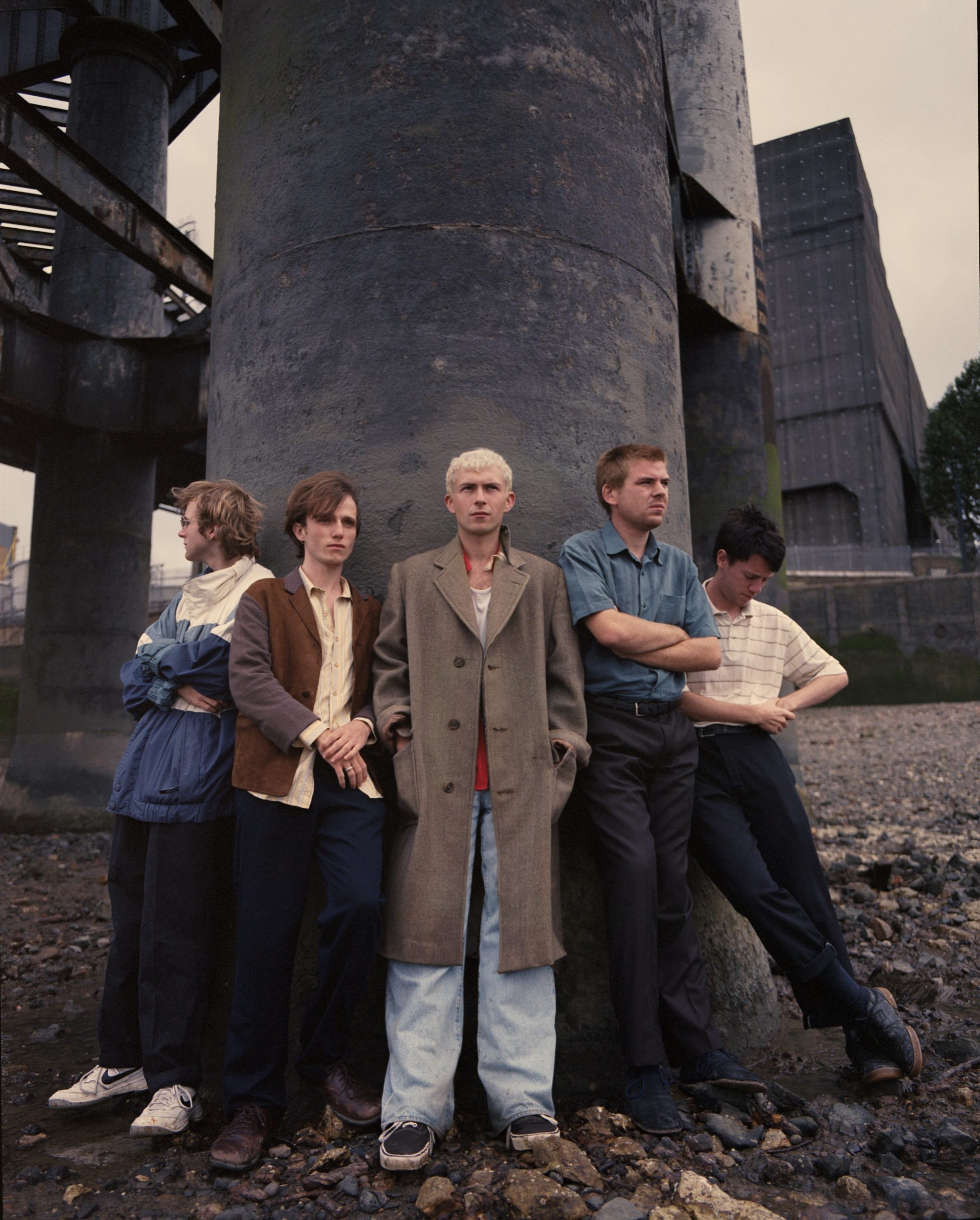
You’ve got to wonder where Shame find the energy. From the opening bars of “Alphabet”, where Charlie Forbes’s pummelling drums reintroduce a furious urgency, to album closer “Station Wagon”, on which frontman Charlie Steen’s guttural vocal command contends with a storm of percussion, piano and guitars, on their second record the south London post-punk band’s stamina is unrelenting.
Drunk Tank Pink is, in many ways, a typical second rock album in that it reflects on the madness caused by the first. Shame’s 2018 debut, Songs of Praise, written when the shouty quintet were barely out of adolescence, was critically adored, garnering them labels including “Britain’s most exciting new band”. Fans were drawn to their no-nonsense lyrics, provocative politics and, most of all, their energetic live shows, honed over years playing at the Queen’s Head in Brixton, former HQ of ramshackle rock group the Fat White Family. Shame toured hard, drank a lot of booze, and then crashed. Their follow-up, landing almost exactly three years later, is a reflection on what it felt like to return to everyday life – even if it doesn’t sound like they laid at all low during the recording process.
On his return from tour, Steen, now 23, lived in a small room painted a shade of pale pink once used to calm down drunk tank inmates. He wrote the record in this room – or “womb” as he calls it (“In my room/In my womb/Is the only place I find peace,” he sings on “March Day”, over jangling guitars) – fighting fever dreams and addressing the psychological tolls of touring. Meanwhile, guitarist Sean Coyle-Smith sat in his bedroom dismantling the rock notions he had until then relied upon, investigating alternative tunings and experimental song structures – arrangements which feature percussion as the centrepiece, or total breakdowns of melody mid-track.
[see also: Albums of the year]
These experiences left Steen and Coyle-Smith (alongside Forbes, guitarist Eddie Green and bassist Josh Finerty), to form a record that is slightly stranger, and certainly darker, than Songs of Praise. The record doesn’t have the same get-up-and-go attitude that their first had, but that doesn’t mean they’ve lost their verve; it’s just been channelled into instrumental experimentations rather than tunes which are straightforward to mosh to. On “Human, For a Minute”, a wall of detuned guitars and kaleidoscopic keyboard riffs puts a psychedelic spin on Steen’s introspective lyrics, while “Born in Luton” is vividly punctuated by the gaps which emerge out of a barrage of tricksy guitar lines. It’s the silence, these musicians realised as touring ended and they sat alone in their empty bedrooms, which is most bewildering.
Steen, taking his vocal cues from Mark E Smith, more often speaks than sings, and is never concerned about sounding strictly melodic – rather, he’s at turns angry, alluring, declarative. But it is always his voice which decides the tone of the track. On the short, pacy “Great Dog”, Steen isn’t singing about much – “The morning comes and the evening fades/The sun is gone but the tie remains” – and yet his vocals are a jetpack, propelling the song to breakneck speed, and then halting proceedings when he decides to stop to catch his breath mid-song. Over rapid drums and guitar, his measured, growling vocals mediate the pace of “Snow Day”.
That’s not to say there isn’t lightness here. There’s a charm in the bravado of “Water in the Well”, which struts as though opening a twisted circus performance. And Steen’s insistence on using clichéd phrases – “Like the wheels on a bus/It just keeps on turning” – and tweaked sayings – “Once smitten/Twice removed” – raises a smirk until at least the third listen. It’s only after that that you wonder what it is he’s really getting at with his endless, overly succinct lines: despite packing a deft sonic punch, any deeper meaning remains obscure.
Drunk Tank Pink isn’t quite the step into the unknown Shame think it is – this may come as a disappointment to the band, but it’s a win for the rest of us. The album may be less raucous than its predecessor, but it still displays the band’s talent for writing songs full of post-adolescent rage, infused with wit and a self-effacing awareness.
[see also: The Avalanches’ We Will Always Love You: uplifting disco meets celestial trip hop]





